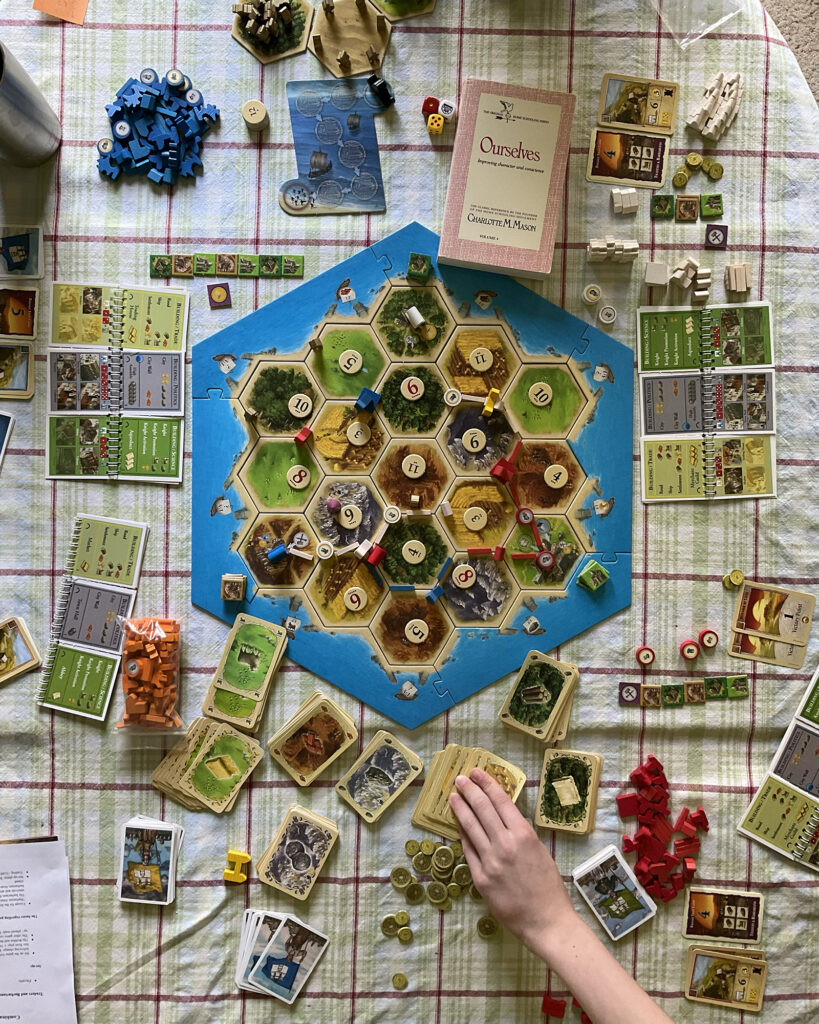The CMP Review — Week of July 3
July 3, 2023
Here is a brief explanation of how we built our built in bookshelves.
We used 1×8 boards for both the uprights and the shelves themselves. The uprights go from floor to ceiling. We then added small shelf height boards to support the shelves between the uprights. The shelves are fastened with 3” screws. We used L brackets to secure everything to the walls.
The shelves vary by book height from 9–11” and one 13” shelf as I really like the look of not a lot of space between the top of the books and the next shelf up. I also was able to get more shelves in this way. You could certainly just take the height of the wall and divide it to a number close to 11, which will accommodate most books.
I hope this was helpful, and maybe inspiring to see how simple our bookshelves are.
@tessakeath
July 4, 2023

Today, technology has permeated every aspect of life. We live in what many observers call a “digitally saturated world.” If the digital has saturated our lives, should it saturate our practice of education too?
Many people speculate how Charlotte Mason would have responded to the tide of technological innovations that claims to enhance the learning process. But these devices and tools emerged many years after Mason’s passing from the world, so we can’t know for sure what she would have thought.
But even in the 1930s, new technology was penetrating homes and schools. Film, radio, and aerial photography were among the most assertive. The PNEU Organising Secretary, known for her “enthusiasm for Charlotte Mason’s philosophy,” carefully analyzed these technologies and wrote about their possible role in a Charlotte Mason education.
Her article has aged well. But it doesn’t merely provide a helpful perspective on media and maps. It also provides a template for how to evaluate the digital of our day, written from the point of view of someone who knew Miss Mason personally. You can read or hear it here.
@artmiddlekauff
July 5, 2023

England certainly knows how to do tiny libraries right! This is “Lark Rise to Candleford” country and so fun to imagine Flora Thompson walking here.
@rbaburina
July 6, 2023

I will never forget the moment reading Ourselves with my son when we came to this sentence: “Even games want the whole of the player, they want Integrity.” My son looked at me, knowing that the sentence was for me. It was the voice of conscience put into words, for all the times I multitasked with my children’s time.
In her book Restless Devices, Felicia Wu Song observes that “living in our digitally saturated society inadvertently trains us to view embodiment as a nuisance, time in terms of scarcity, and the other as an object to be managed or manipulated for one’s pleasure.” A board game played with integrity — with undivided attention — invites us to view embodiment as an opportunity, time as a gift, and the other as a companion in the enjoyment of life.
John Muir Laws wrote that “a useful way to define love is sustained, compassionate attention.” While attention may not be all that love demands, attention is what love demands. To be fair, a game of Catan with two expansion packs demands attention just to keep up with what’s going on. Even though I played with integrity, I couldn’t manage better than last place. But with all devices and cares set aside, my companions knew they were first in my heart.
@artmiddlekauff
July 7, 2023

We were looking under a milkweed leaf to try to find a monarch chrysalis, and we found this clump of tiny yellow eggs instead. And you can see the small yellow flying insects farther down on the right.
Can anyone help us identify them?
@antonella.f.greco
July 8, 2023
A dream of mine was fulfilled overlooking Rhossili Bay in Wales when a Skylark’s song was heard. It rose out of a thicket in all its glory before parachuting back to earth and continuing its melody.
@rbaburina
July 9, 2023

“All four gospels tell us that Jesus’ hearers accused him of being either possessed by, or in league with, the devil,” observes N. T. Wright. In the Gospel of John, we find the accusation in chapter 8.
Wright reflects, “Clearly, this isn’t something the early church would have made up; equally clearly, then, Jesus must have been saying and doing things that were remarkable enough, and disturbing enough, to make people throw such an accusation at him. What precisely was he saying here, and why, in the end, did they try to stone him to death?”
Charlotte Mason’s imaginative poem points the way to an answer. Read or hear her dramatization of the accusation of John 8:52, and of our Lord’s reply. Find it here.
@artmiddlekauff